Confirmed Plenary Speakers
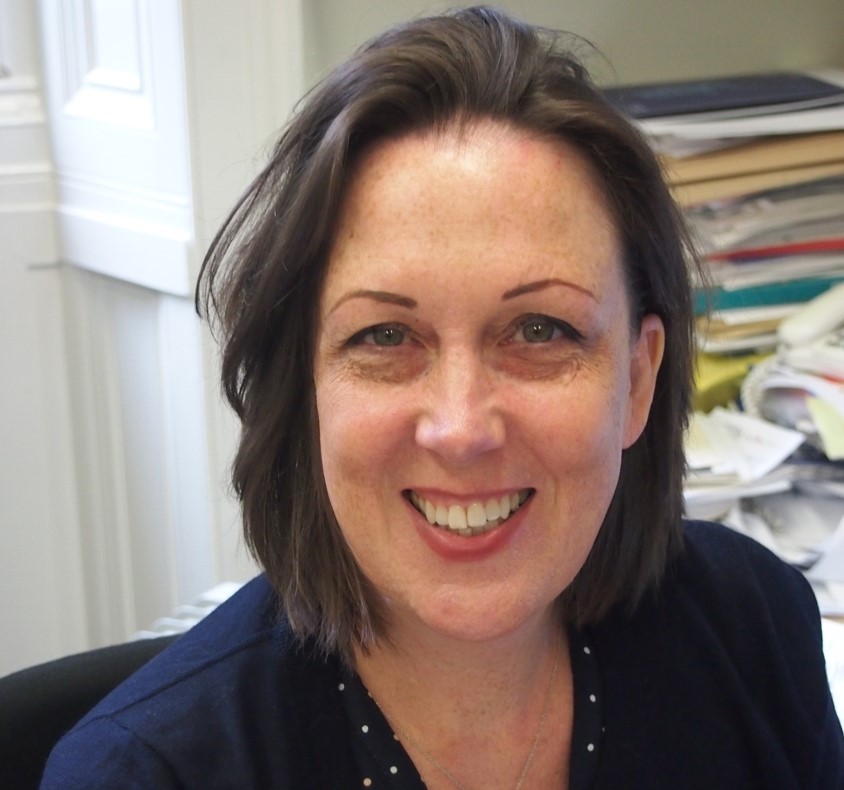
Conference Dinner Speaker: Prof Sheila Rowan - Science at Scale.
Professor Sheila Rowan is an experimental physicist, and since 2009, Director of the Institute for Gravitational Research in the University of Glasgow in the UK. She received her PhD (1995) in the field of gravitational wave instrumentation from the University of Glasgow, and subsequently held research positions split between Stanford University and Glasgow before returning full time to a Faculty position in Glasgow in 2003. Her research is focused on optical and mechanical systems for use in detectors such as the Advanced LIGO observatories, responsible for picking up the first gravitational wave signals from colliding black holes in 2015. She was awarded Fellowship of the American Physical Society in 2012, received an MBE for services to science in the Queen's Birthday Honours list in 2011, and received the Hoyle Medal and Prize of the UK Institute of Physics in 2016 in recognition of her pioneering research on aspects of the technology of gravitational wave observatories.
In 2018 she was awarded Honorary Fellowship of the Institute of Physics and elected to Fellowship of the Royal Society of London. Since 2016 she has been seconded (part-time) to be Chief Scientific Advisor to the Scottish Government.
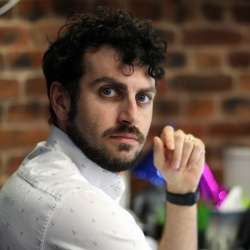 Dr Alfredo Carpineti - Being LGBTQ+ In STEM
Dr Alfredo Carpineti - Being LGBTQ+ In STEM
What is it like being LGBTQ+ in a STEM field in this day and age? What are the challenges, what is being done, and what are our hopes for the future?
Dr. Alfredo Carpineti is an astrophysicist, journalist (IFLScience), science communicator, and social activist. He's the chair and founder of Pride in STEM, an award-nominated charity working to raise the profile and showcase the work of LGBTQ+ people working in STEM. He was one of the organisers of LGBTSTEM Day.
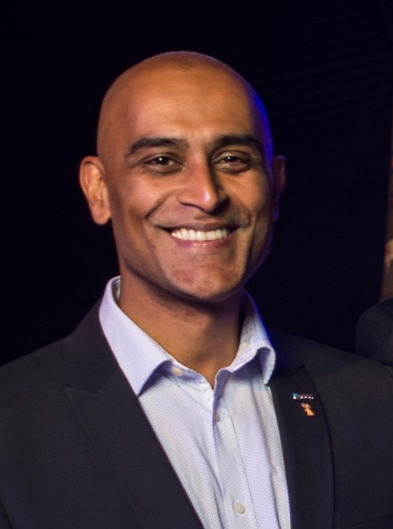 Prof Anu Ohja - The Secret Rulers of the world – the Apollo Moon Landings, conspiracy theories and critical thinking skills in a “post-truth” world
Prof Anu Ohja - The Secret Rulers of the world – the Apollo Moon Landings, conspiracy theories and critical thinking skills in a “post-truth” world
In our technologically driven society, the number of people who believe that the Moon landings took place in the Nevada Desert, that the 9-11 attacks either never happened or were controlled demolitions and that climate change is a hoax, is ever increasing, even though many of these views have little acceptance within the academic community. Why is this the case?
Are scientists part of the global conspiracy or are things not quite as they appear? What is the relevance of the critical thinking skills that are at the heart of any scientific education - and who cares what people choose to believe? And what are the ramifications for modern democracy in an increasingly media-driven “fake-news-weary” society?
Professor Anu Ojha OBE is Director of the UK’s National Space Academy programme and a Director of the UK National Space Centre (the UK’s largest visitor centre for space science and astronomy). In 2018 he was appointed to STFC Council and also ESA’s Human Spaceflight and Exploration Science Advisory Committee (HESAC) – the senior advisory body to ESA’s Director of Human Spaceflight and Robotic Exploration on all matters concerning scientific exploitation of human spaceflight, microgravity and exploration programmes.
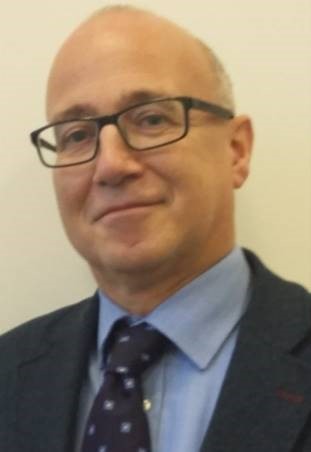
Prof Colin Pulham, University of Edinburgh - Reflections on the changing faces of public engagement – a journey with STFC
Prof. Colin Pulham graduated with a DPhil. in Chemistry from the University of Oxford in 1991. He moved to the School of Chemistry at the University of Edinburgh in 1992 as a Royal Society University Research Fellow before being appointed as a lecturer in 1996, senior lecturer in 2001, and Personal Chair in High-Pressure Chemistry in 2008. Since August 2015 he has been the Head of the School of Chemistry. He is a founding member of the Centre for Science at Extreme Conditions (CSEC) at Edinburgh and has research interests in the crystallisation of molecular compounds such as pharmaceuticals, energetic materials (explosives, propellants), fuels, and lubricants, under a range of conditions including elevated pressures and temperatures.
An ongoing industrial collaboration with a local SME (Sunamp Ltd) is focussed on the development of crystalline phase-change materials for compact thermal stores to replace domestic and industrial hot water tanks. He works closely with colleagues at the ISIS Neutron Facility and at the Diamond Light Source. He has a longstanding interest in public engagement and was awarded the Royal Society Kohn Award for Excellence in Engaging the Public with Science in 2005 and the University of Edinburgh Tam Dalyell Prize in 2011. He chairs the STFC Advisory Panel for Public Engagement.
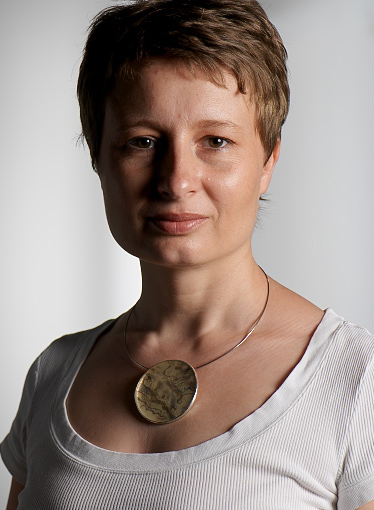 Fiona Auty, National Physical Laboratory - Redefining the SI - telling the world!
Fiona Auty, National Physical Laboratory - Redefining the SI - telling the world!The agreement of measurements worldwide is probably one of the worlds largest collaborative science endeavours but is largely taken for granted by the majority of people as it just works. The International System of Units called the SI, are being redefined and this is an exciting moment in time for us metrologists - so how do we get the rest of the world excited about it too?
Fiona joined NPL as a junior Scientist with qualifications in electrical and software engineering. Following 8 years “at the bench” where she was involved in the development of the chip and pin card, she moved in a variety of roles that played to her strength – building relationships to communicate her love of science and the difference that it makes.
Motivated by a comment that "NPL was one of the UK's best-kept scientific secrets," Fiona has made it a personal mission to make NPL's research more accessible and understandable to all. She is driven by demonstrating the impact that measurement science has on our everyday lives and the desire to inspire future generations of scientists.
She has created communications strategies and managed broad stakeholder groups for the majority of her career undertaking roles in the Department of Business, Energy and Industrial Strategy, FTSE 100 company – Serco and a number of smaller business focused schemes, as well as a long standard career in NPL. She has also built businesses in training and knowledge transfer.
As Head of Government Relations and Corporate Communications, Fiona oversees the governance and impact of the £80M of science expenditure on behalf of BEIS. She works with senior government stakeholders to build profile on the role and benefits of NPL and the broader AIRTO community.
Fiona particularly enjoy navigating complexity, culture change and bringing simplicity to messages and process that make a difference. An advocate of lifelong learning she is a Chartered Manager in the Chartered Management Institute, and STEM champion with interest in supporting girls and non-traditional education routes such as apprentices.
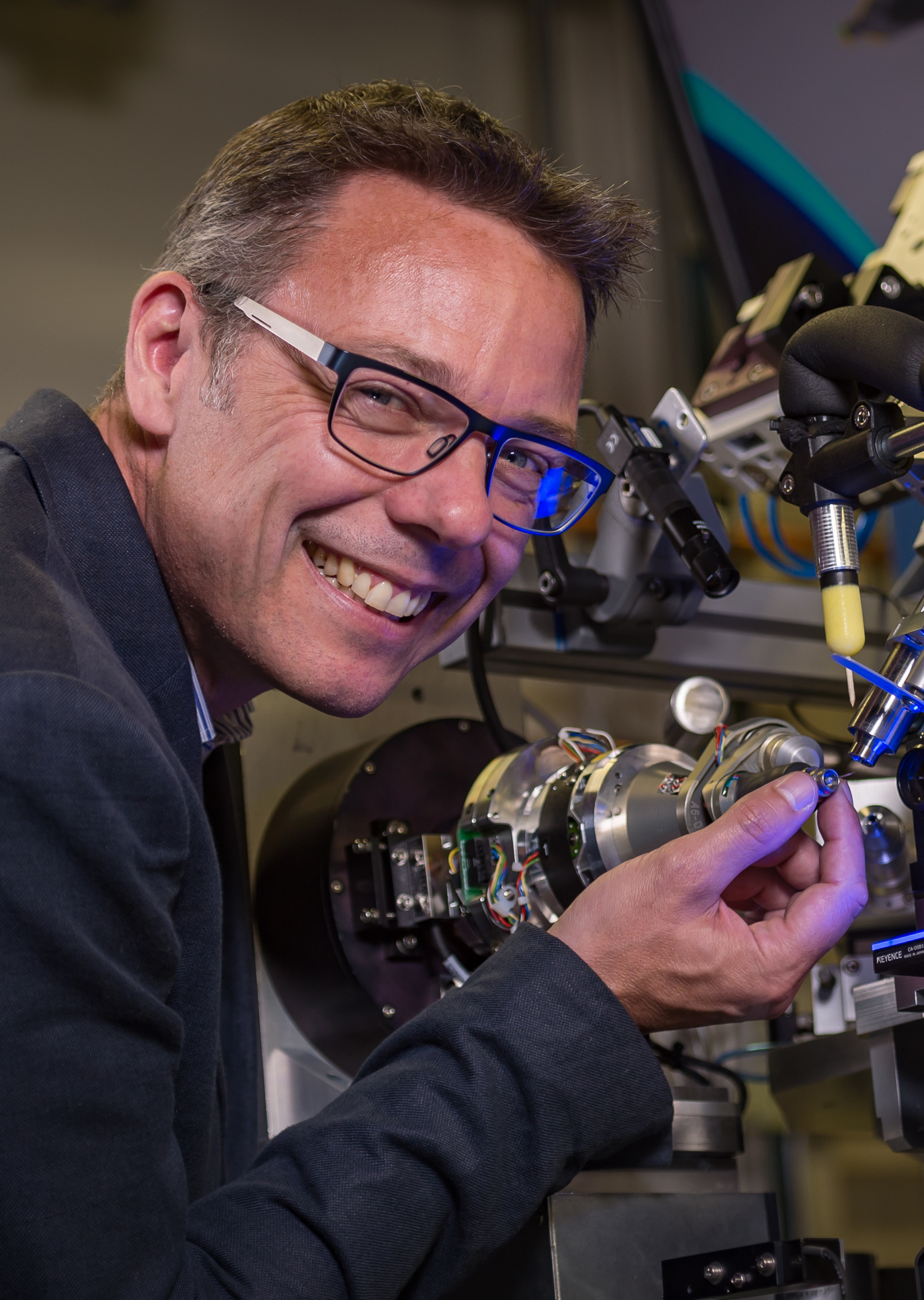 Professor John McGeehan, University of Portsmouth - Engaging with public with plastic-eating enzymes
Professor John McGeehan, University of Portsmouth - Engaging with public with plastic-eating enzymesIt is clear that some subjects are easier to communicate than others, and after many years of attempting to convey the importance of synchrotron facilities and X-ray crystallography for my research projects with minimal traction, our latest scientific contribution went unexpectedly global. The effects of this have been quite profound and have already benefited our research programme, even though it remains focused at the level of fundamental science.
The scene was set for this by the airing of David Attenborough’s Blue Planet II, a superb piece of engaging and emotive documentary that captured the attention of the world to our growing crisis of plastic pollution and the effects on our environment and wildlife. The media attention was extreme, and news stories of the sheer extent of the problem, from contamination of the poles of the planet to the deepest regions of our oceans, created a demand from the public for knowledge, answers and solutions. It was during this time in early 2018 that our manuscript on the characterisation of a plastic-degrading enzyme using the Diamond Light Source went under review in the journal PNAS.
Everyday plastics such as poly(ethylene terephthalate), or PET, are highly versatile but are accumulating in the environment at a staggering rate as discarded packaging such as single-use drinks bottles, textiles and carpet. The chemical properties that make PET so useful, also endow it with an alarming resistance to natural biodegradation, likely lasting several centuries in the environment. Recently, a newly discovered bacterium, Ideonella sakaiensis 201-F6, was shown to exhibit the rare ability to grow on PET as a major carbon and energy source. Central to its PET biodegradation capability is a secreted PETase (PET-digesting enzyme). Using the newly commissioned I23 beamline at the Diamond Light Source, we were able to generate a high-resolution X-ray crystal structure of PETase, which provided a template for understanding and engineering the enzyme. By narrowing the active site binding cleft via mutation, we surprisingly observed improved PET degradation, suggesting that PETase is not fully optimized for crystalline PET degradation, despite presumably evolving in a PET-rich environment. These findings suggest that additional protein engineering to increase PETase performance is realistic and highlight the need for further developments of structure/activity relationships for biodegradation of synthetic polyesters.
There has been incredible interest in this work, and the associated paper in PNAS reached the Altmetric Top 100 for 2018 and the media coverage reached a global audience of 200 million. Working with funders, investors and now multinationals, we are developing a new Centre for Enzyme Innovation (CEI) at the University of Portsmouth focusing on the discovery, engineering and deployment of enzymes and enzymatic systems with potential application to the circular economy. This talk will describe our latest research in the area of plastic-active enzymes and how we hope to take it forward.
John McGeehan is a Professor of Structural Biology focused on the global challenge of plastic pollution and leads a team of scientists researching natural enzyme discovery and engineering. Their latest work (Austin et al., PNAS, 2018) reveals the detailed workings of an enzyme that can digest polyethylene terephthalate (PET). Found in single-use drinks bottles, packaging, clothing and carpets, PET can take centuries to decompose, and together with other plastics, is accumulating in our environment at a staggering rate. A biological catalyst that can break PET down into it’s original building blocks opens new opportunities for recycling towards a circular plastics economy.
